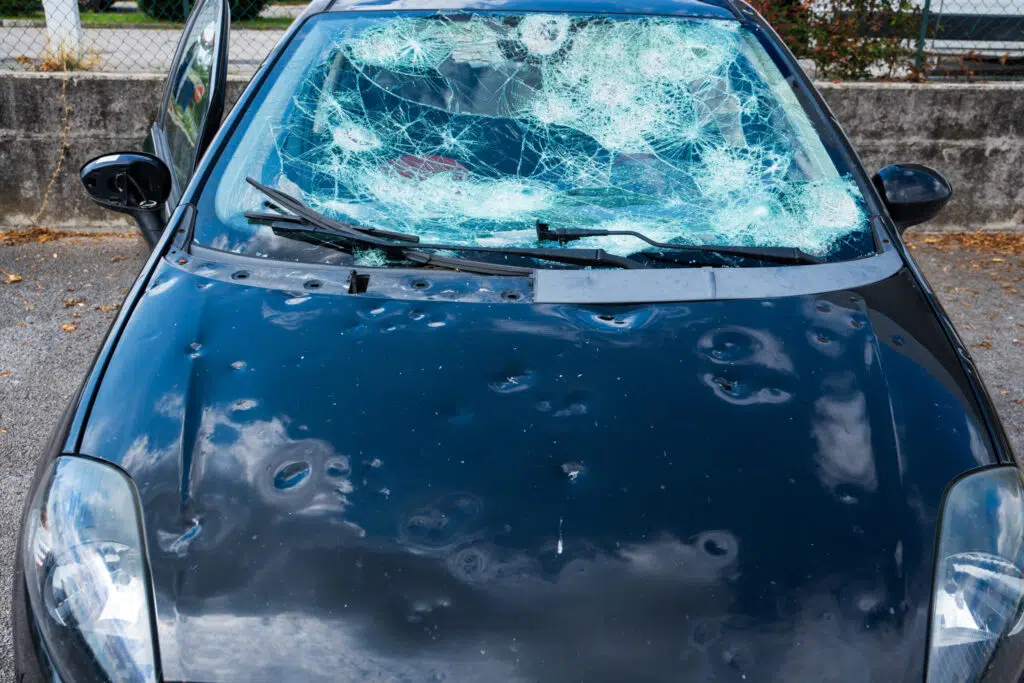Florida Car Accident Lawyer
When you’ve been in a car accident in Florida, you may be facing severe pain, suffering, missed work, and overwhelming medical expenses. It’s not right for you to be stuck paying the bill for someone else’s mistake. We have offices and serve injury victims throughout the state. Our Florida car accident lawyers can also meet you where you are to help you pursue financial damages from those who carelessly caused you harm.
Home » Florida Personal Injury Lawyers » Florida Car Accident Lawyers
When you’ve been injured because of someone else’s carelessness, you deserve financial compensation for the physical, emotional, and financial harm you have suffered. We understand how devastating car accident injuries can be, and we can help you get through this. Call our caring and skilled Florida car accident attorneys today at (877) 245-6707 for a free consultation.
Why Should You Trust Farah & Farah To Handle Your Florida Car Accident Claim?
We are a family-centered law firm that can give you the individual attention you need, yet we are large enough to go up against big corporations and insurance companies and win for our clients who might otherwise have been denied compensation.
We’ve protected families since 1979, and our experience makes all the difference in what we can do to help you. We’re familiar with the tactics insurance companies use to evade responsibility, and we know how to put a stop to them so you get the compensation you deserve.
We pride ourselves on our commitment to putting clients first. This is why you will get more than just a single attorney when you hire our nationally-recognized Florida personal injury law firm. You’ll work with a team of attorneys, paralegals, and support staff who will combine strengths and resources to maximize your award.
We have an open-door policy, so you can always reach your team and get your questions answered. Our goal is to get you as much compensation as possible as quickly as possible. We will fight passionately for you because we care, and it means everything to us to help those who need it most. Contact us today for a free consultation.
We Care About All People in the Communities Where We Live and Work
Our attorneys and staff are members of communities throughout Florida, and this gives us unique insight into the best way to handle your car accident case. It also motivates us to do everything we can to create safer communities and roadways for everyone. This is why we started the Safe Ride Home Program.
The Safe Ride Home Program provides free vouchers to help people get home safely during the holidays when alcohol is a common part of annual celebrations. We have partnered with Uber and local taxi companies to provide partygoers with free vouchers so they have a safe ride home after enjoying the festivities.
The Safe Ride Home Program is one of many ways we are actively involved in our communities. Our Florida car accident attorneys are involved in numerous local events and in charitable programs that benefit children, veterans, human trafficking survivors, disabled Floridians, and others who are disadvantaged in our communities.
Our Florida Car Accident Results
We have recovered more than $2 billion on behalf of our injured clients, and these results are no accident. We get results through caring, understanding, and hard work. Below are just a few examples of the thousands of successful car accident settlements and verdicts we have obtained for our deserving clients:
- $3.4 million verdict for our client who suffered a herniated disc after being rear-ended by a moving truck.
- $2.5 million recovery for a client who was injured in a collision with a pickup truck.
- $2.4 million verdict for an injured driver who was unable to return to work.
- $1.8 million recovery for a husband and father who became disabled in a low-impact collision while driving a company truck.
- $1.4 million recovery for a U.S. Army veteran injured in an accident on I-95.
- $1.2 million recovery for a client who suffered spinal cord damage after being rear-ended.
- $1.2 million recovery for a client who sustained cervical spinal cord damage and lost his well-paying job after a failed surgery.
- $1.1 million recovery for the victim of a failure to yield car accident suffering from neck and back injuries.
What Our Clients Say About Our Florida Car Accident Lawyers
Our clients know how much we care about their physical, emotional, and financial well-being. Below are a few examples of the client testimonials we regularly receive from clients throughout the state as a result of the caring and hard work we invest in every client:
“They listen, they really care about you, about your health, and about your personal life after an accident to see what kind of effect it may have on you. They are there every step of the way, and never will they leave you. I’m so grateful to them. My first experience dealing with Farah & Farah was a very great one. If I ever get into another accident (which I hope not), Farah & Farah is the first stop I’ll make. Thank You For Everything!!!!”
— Demetria N. of Ocala
“I was in a terrible car accident that caused my car to be totaled and I was injured. I called Farah & Farah and I was taken care of immediately. Appointments with specialists were set, and I was constantly called to be checked on physically and emotionally. Updates were constantly being given as well. I was really treated like family and I was taken care of financially as if I were their own! I love and appreciate everything that Farah & Farah has done for me! Thank you!!”
— Keosha P. of Daytona Beach
“My experience with Farah & Farah for not one but TWO cases was exceptional. I was involved in two motor vehicle accidents in the same year at no fault of my own. Attorney Brian Morrison and Paralegal Mary Warren were outstanding. I was met with the utmost professionalism, kindness, and a true feeling that my case(s) truly mattered. I would recommend this firm to anyone.”
— Sean W. of Fort Myers
Our Office Locations and Communities We Serve in Florida
We have offices in every region of Florida, and we are always willing to travel to you if you’re unable to make it to our office. This is one way we demonstrate our commitment to making sure great legal representation is accessible to all Florida residents injured in car accidents. No matter where you experience an accident in Florida, we’re always just a phone call away. Call us now at (877) 245-6707.
West-Central Florida
Our Tampa car accident attorneys have offices in Bradenton, St. Petersburg, and Tampa, but we serve all of West-Central Florida, whether you’re anywhere in the Tampa-St. Petersburg-Clearwater metro area or near Bradenton.
Our Bradenton car accident lawyers can meet you in Palmetto, West Samoset, West Bradenton, South Bradenton, Memphis, Samoset, Ellenton, Cortez, Longboat Key, Bradenton Beach, Holmes Beach, and Anna Maria.

Northeastern Florida
Our Northeastern Florida car accident lawyers have offices in Jacksonville, Jacksonville Beach, Orange Park, St. Augustine, and Yulee. Our Jacksonville car accident lawyers proudly help clients throughout the Beaches, including Mayport, Atlantic Beach, Neptune Beach, and Ponte Vedra Beach, at our Jacksonville Beach office.
Likewise, our Yulee car accident lawyers can come to you anywhere in Nassau County, including Fernandina Beach, Nassau Village-Ratliff, Hillard, and Callahan. No matter where you are in Northeastern Florida, you can count on us to come to you.

North Central Florida
Our Gainesville car accident lawyers have offices in Lake City, Ocala, and Gainesville, and we serve all of the surrounding areas. For example, our Lake City car accident attorneys represent clients throughout Columbia County, including Watertown, Five Points, and Fort White.
East-Central Florida
Our Daytona Beach car accident lawyers have offices in DeLand, Melbourne, and Daytona Beach. We serve all areas surrounding each of these communities.
Our Melbourne car accident lawyers help clients throughout Brevard County, including Palm Bay, Titusville, Merritt Island, Rockledge, and Cocoa. Wherever you are in East-Central Florida, our Florida car accident attorneys will come to you.
Central Florida
If you are injured in a car accident anywhere in Central Florida, our Orlando car accident lawyers in our Kissimmee or Orlando offices can meet you at your home, the hospital, or another convenient place.
Southwest Florida
Our Southwest Florida office locations include Cape Coral, Fort Myers, and Sarasota. Our Sarasota car accident lawyers can help you in Siesta Key, Fruitville, Venice, and North Port. If you are injured in a car accident in Port Charlotte, Punta Gorda, or Naples, our Fort Myers car accident lawyers will be there for you.
Most Common Driving Risks in Florida
If every driver always followed the law, paid attention to the road, and showed courtesy, the number of car accidents in Florida would plummet. While accidents occasionally happen due to defective vehicles or road conditions, the vast majority are caused by human error, including:
- Speeding. Speeding is a dangerous habit with a three-fold risk. It makes it harder to control your vehicle, increases your stopping distance, and increases the impact of a crash. It’s a significant problem, resulting in 17,797 collisions throughout Florida in 2021. These collisions caused 211 deaths and at least 509 incapacitating injuries.
- Impaired driving. Impaired driving includes drunk driving and driving under the influence of drugs. It's the most common cause of fatal accidents in Florida, with an average of 4,883 confirmed alcohol-related crashes yearly, 728 confirmed drug-related crashes, and 405 crashes involving drugs and alcohol. The annual death toll from impaired driving is 1,029.
- Distracted driving. Distracted driving killed 344 people on Florida roadways in 2021 and injured up to 48,189. It was the most common cause of car accidents in Florida in 2021, with 155,406 crashes attributed to distracted driving. Distracted driving includes any activity that prevents the driver from thinking about driving or watching the road. It includes texting, talking on a cell phone, eating, applying makeup, dealing with children, or daydreaming.
- Aggressive driving. Aggressive driving is reckless driving because of road rage or a desire to get even with another driver. This type of driving behavior is dangerous. In 2021, 14,303 car accidents occurred in Florida because of aggressive driving, killing 132 people and injuring at least 1,809 more.
- Drowsy driving. Drowsy driving is almost as dangerous as drunk driving and can cause serious accidents. It is a significant problem in Florida, resulting in 18 fatalities and 275 incapacitating injuries in 2021.
- Failure to yield. Failure to yield is one of the leading driving errors that lead to traffic deaths, causing 474 fatal accidents throughout Florida in 2021 alone.
Florida’s Most Dangerous Roads
Florida has the unfortunate distinction of being home to four of the 10 most dangerous highways in the United States, based on the number of deaths per mile.
Interstate 4 is listed as the most dangerous highway in the United States, with the most dangerous area around Orlando. This is the only highway with more than one death per mile on average. Interstate 95 is in eighth place, and the deadliest stretch is in the Jacksonville area.
The most dangerous highways aren’t limited to interstates. U.S. Highway 92, which runs from St. Petersburg to Daytona Beach, is rated the fifth most dangerous highway in the United States, especially in the Tampa area. U.S. 192, which runs from Four Corners to Indialantic, is in third place and is most deadly in the Kissimmee area.
These highways are well-known for heavy truck traffic, confusing interchanges, traffic congestion, and speeding drivers, all of which contribute to higher accident occurrences. In fact, these same problems plague multiple roads throughout the state.
As a result, the following roadways in Florida experience the highest numbers of fatal accidents in the state:
- U.S. 19 from San Marco Drive to Denton Avenue in Pasco County.
- U.S. 41 from 30th Avenue East to Pearl Avenue in Bradenton.
- I-95 from Hypoluxo Road to Woolbright Road in Lantana and Boynton Beach.
- I-95 from Exit 27 to Exit 32 in Fort Lauderdale, Sunrise, and Oakland Park.
- U.S. 19 from Queensboro Avenue South to 54th Avenue North in St. Petersburg and Largo.
- I-95 from Exit 4 to Exit 9 in Miami.
- U.S. 441 from Northwest 181st Street to Polk Street in Miami Gardens, Hollywood, Miramar, and Miami.
- U.S. 19 from High Street to Embassy Boulevard Port Richey and New Port Richey.
- I-95 from Exit 20 to Exit 16 in Pembroke Pines, Hollywood, Hallandale Beach, and Miami.
- U.S. 90 from Meadowbrook Boulevard to Parental Home Road in Jacksonville.
Miami-Dade County has the highest number of crashes per year, with a three-year average of 59,741.
Types of Florida Car Accident Claims We Handle
Every car accident claim is unique, and our seasoned Florida car accident lawyers have handled them all.
Insurance Claims
Insurance companies are in the business of making money, and they are not always willing to pay it out, no matter how obvious it is that they owe it. They may attempt to take advantage of you in your injured condition and persuade you to accept a lowball offer. We will handle all of your insurance claims for you and put a stop to these tactics.
Lawsuits
When an insurance company refuses to pay the compensation you deserve, we will file a lawsuit, which may end in a settlement or a verdict. We can also file a lawsuit against an uninsured or underinsured driver and additional third parties who may be responsible for your accident.
When our Florida car accident lawyers file a lawsuit, we will present evidence that your injuries occurred because the at-fault parties were negligent. To qualify as negligence, all four of the following elements must be present:
- The other driver owed you a duty of care.
- The driver breached that duty.
- You experienced an injury.
- The breach of duty is the direct and proximate cause of your injuries.
A breach of duty by another driver occurs when the driver violates traffic laws, drives while distracted, uses poor judgment, or otherwise fails to exercise reasonable care to prevent an accident.
Other parties who may breach a duty of car and incur liability for a car accident include manufacturers of defective car parts, bar owners who serve too much alcohol, employers, mechanics, and vehicle owners.
Wrongful Death
Our Florida wrongful death lawyers can help your family through the difficult circumstances surrounding the death of a loved one in a car accident. We can also help your family recover significant financial compensation.
Defective Products Claims
Our car accident lawyers in Florida have identified defective products as the cause of thousands of accidents, and we can help you hold the manufacturer accountable. The most common defective parts we have seen lead to car accidents include the following:
- Airbags that were inappropriately deployed.
- Defective tires that blew out.
- Faulty brakes.
Road Condition Claims
If your accident was caused by potholes, poor nighttime lighting, or faulty construction, we can help you file a claim against the construction company or government entity responsible for these conditions.
Why You Should Call Us Even if You Were Found at Fault for the Accident
Being found at fault in an accident in Florida does not necessarily prevent you from obtaining compensation for your injuries. Florida is a no-fault state, meaning you can recover compensation from your own insurance policy regardless of fault.
You don’t have to accept a finding of fault by law enforcement or the insurance company, even if you think you might have been at fault. Car accidents happen too quickly for any reasonable person to be aware of all elements present during an accident. We have successfully refuted fault in thousands of car accidents.
Even if you are at fault in the accident, this doesn’t mean you are 100 percent to blame. According to Florida’s comparative negligence law, you can still pursue compensation from another at-fault party as long as you are less than 50 percent at fault. Your compensation will be reduced by the percentage of your fault.
What Should I Do If I’m Found at Fault for a Car Accident in Florida?
Before you accept a finding of fault, call our experienced Florida car accident lawyers today at (866) 419-5704. Don’t let an insurance company convince you that a finding of fault by the police is final. Insurance companies rely on police reports when it works in their favor. The only way to overcome a finding of fault is to present hard evidence that proves it wrong.
We’ll work with experts to gather the following evidence and more to prove you’re less than 51 percent at fault:
- Eyewitness reports
- Video surveillance
- Black box data
- Forensic analysis
If your case goes to court, the court will accept our evidence. However, the police report and any statements you made to the police will not be accepted as evidence of fault. Even if you received a ticket, it isn’t evidence of fault, and it cannot be used against you in court.
Insurance companies know these materials are inadmissible in court, but they use their superior knowledge to take advantage of you. Don’t let them get away with it. Our knowledgeable car accident lawyers in Florida will advise you of your rights, protect your claim, and fight for you.
Dealing With Insurance After a Car Accident in Florida
Every driver in Florida is required to maintain a minimum of $10,000 in personal injury protection and $10,000 in property damage liability. The following insurance coverage is available in Florida but not required by law:
- Bodily injury
- Uninsured motorist
- Underinsured motorist
- Collision
- Comprehensive
Which Insurance Pays Damages?
You file your initial claim against your own no-fault accident insurance, which is also known as personal injury protection, or PIP. Your PIP coverage in Florida pays for 80 percent of your medical expenses and 60 percent of your lost wages up to your coverage limits.
If you purchased the minimum amount of PIP required under the law, your total coverage for medical expenses and lost wages are capped at $10,000. If you meet the state threshold for serious injury, you can file a PIP claim against the at-fault driver’s insurance to recover additional damages. The state defines a serious injury as any one of the following:
- Loss of a major bodily function
- Permanent injuries
- Permanent and significant scarring and disfigurement
- Death
Permanent injuries may include severe traumatic brain injuries, spinal cord injuries resulting in paralysis, and other injuries. Scarring and disfigurement may result from severe burns or loss of a limb.
If the at-fault driver’s insurance does not cover your damages, you can file a claim against your underinsured coverage. You can also file a claim for damage to your vehicle through your collision coverage if you have that coverage.
How Our Experienced Car Accident Attorneys in Florida Can Make a Difference for You
When you hire our award-winning car accident attorneys anywhere in Florida, you can count on us to fight for you to receive the maximum compensation available for your injuries. You won’t have to deal with the insurance company, struggle through paperwork, or worry about meeting legal deadlines because we will handle everything for you.
- We will perform a thorough investigation of your accident. We work with some of the best accident reconstructionists in Florida to determine what caused your accident and gather forensic evidence against the parties who are to blame.
- We will work to prove your damages. We work with top medical experts who can verify how severe your injuries are and how they will affect your finances and quality of life moving forward. We will spend time with you and those who care about you so we can fully understand what you have lost.
- We will skillfully negotiate for the settlement you deserve. We will immediately notify your no-fault insurance company and the at-fault party’s insurance that we are handling your claim and instruct them to contact us for all further communication. We will leverage the evidence we have gathered and our reputation as successful trial lawyers as leverage to get you a fair and reasonable settlement.
- We will take your case to trial if necessary. Our Florida car accident attorneys are accomplished trial lawyers who can confidently assert your claim in court when an insurance company fails to voluntarily pay fair compensation. Although the majority of our cases settle, we prepare every case for court from the beginning, so we are always ready.
Damages We Can Help You Recover After a Car Accident in Florida
Car accident damages in Florida aim to cover your monetary losses and financially compensate you for intangible losses that can’t be measured in dollars. These are known as economic and non-economic damages.
Economic damages include compensation for lost wages, medical expenses, and property damage. They can also include miscellaneous expenses, such as the value of services you can no longer provide for yourself. These include personal care, childcare, and housekeeping.
Non-economic damages include compensation for such damages as the following:
- Pain
- Suffering
- Loss of society
- Scarring and disfigurement
- Loss of enjoyment of life
- Disability
- Loss of companionship
- Loss of bodily functions
If you have clear and convincing evidence of deliberate misconduct or gross negligence, you may also be able to collect punitive damages. These damages may be awarded in collisions caused by drunk driving and aggressive driving.
Compensation for the Loss of a Loved One in a Car Accident
If you’ve experienced the tragic loss of a spouse, parent, or other close family member in a car accident, you may be able to recover compensation for your family’s financial and emotional losses, including the following:
- The lifetime income your loved one likely would have earned had they lived.
- Your family member’s pain and suffering between the accident and death.
- The loss of your loved one’s companionship, guidance, support, or advice.
- Loss of marital relations.
- Your loved one’s final expenses.
You can count on our caring and skilled Florida car accident lawyers to support you and fight for justice for your loved one during this difficult time.
Where Does Compensation Come From in a Car Accident Claim?
Many drivers in Florida only carry the minimum coverage available, which is often insufficient to cover damages. After exhausting your PIP coverage and the at-fault driver’s insurance coverage, we will work to identify additional insurance coverage.
We’ll work with our accident reconstructionists to look for evidence that someone other than you or the other driver contributed to the accident. For example, we will look for evidence of defective auto parts. We will also perform a nationwide search for recalls on all vehicles involved.
If we find that defective parts or poor workmanship contributed to your accident, we will seek compensation from the manufacturers and suppliers on your behalf. We may also uncover evidence that government entities, such as those responsible for maintaining roads, contributed to your accident.
You can count on our attorneys to leave no stone unturned in discovering all the parties who contributed to your accident. This will increase the available compensation and help us maximize your settlement or verdict.
Are There Damage Caps in Florida Car Accident Cases?
Punitive damages in Florida are limited to three times the total of your economic and non-economic damages or $500,000, whichever is greater. However, there is no hard limit on economic or non-economic damages after a car accident.
Economic damages are only limited by your ability to prove your losses. Our Florida car accident attorneys have long-standing relationships with the nation’s foremost financial analysts and medical experts, who can serve as expert witnesses to help prove your present and future economic damages.
Non-economic damages can be any amount that seems fair and just based on the severity and duration of your pain, suffering, and other intangible losses.
Our Florida Car Accident Lawyers Won’t Let You Miss the Statute of Limitations
The Florida car accident statute of limitations has recently been reduced from four to two years. This means you forfeit your right to recover damages for your injuries if your lawsuit is not filed within two years of the accident.
Your case may require significant investigation and preparation before your lawsuit can be filed. This is just one reason why you shouldn’t wait to contact an attorney after your accident. Here are a few other reasons you will want to work quickly after your crash:
- Evidence needed to identify all of the causes and contributing factors in your accident may only be available for a short time.
- An experienced Florida car accident attorney can protect your rights from the beginning and prevent the insurance company from taking advantage of you while you are hurt.
Our Answers to Frequently Asked Questions About Florida Car Accident Injuries
Answers to the questions we most often receive are provided below. If you have additional questions, please call us at (877) 245-6707 from anywhere in Florida. We answer calls 24 hours a day, seven days a week.
What Should I Do After a Florida Car Accident?
If you are severely injured in a car accident, your top priority is to protect your life and well-being. Call 911 and try not to move unless necessary to get out of danger. If the injuries happened to someone else, the law requires you to render aid and help the party call for assistance.
While waiting for police to arrive, if you are able, exchange insurance information with the other driver, but do not comment about the accident, apologize, or admit fault. If you can take pictures of the scene and shoot a video, this could help your lawyer investigate. Be sure to record the contact information of witnesses that are present.
When police arrive, be mindful that anything you say can be used against you in your personal injury claim. Do not do any of the following:
- Talk to the insurance company without a lawyer present.
- Sign paperwork from the insurance company without an attorney present.
- Talk about your case to friends or family members, especially on social media.
- Skip out on any of your medical treatments.
- Ignore symptoms that may stem from your car accident.
What Are the Most Common Injuries in Florida Car Accidents?
The most common injuries after a car accident include broken bones, back injuries, spinal cord injuries, traumatic brain injuries, severe burns, and neck injuries. Some injuries are not immediately apparent, so it is important to obtain a medical evaluation as soon as possible after your accident.
What Is the Average Cost of Treatment for Florida Car Accident Injuries?
According to Florida Surgery Consultants, the average treatment costs for specific types of injuries are as follows:
- Knee replacement - $50,000.
- Treatment for mild traumatic brain injury - $85,000.
- Treatment for severe traumatic brain injury - $3 million.
- Surgery for spine injuries - $150,0000.
- Herniated disc surgery - $15,000 to $75,000, depending on whether spinal fusion is needed.
- Spinal fusion surgery - $100,000.
- Broken arm - up to $16,000.
- Fractured hip - up to $40,000.
This is in addition to the cost of treating accompanying minor injuries and the cost of ongoing care. It also doesn’t include the cost of X-rays, CT scans, medication, and follow-up examinations. If you are taken to a state-designated trauma center after your accident, you may be charged a trauma entry fee ranging from $1,500 to more than $30,000 in addition to your medical treatment.
By the time you include all of your medical expenses, lost wages, and property damages, the total average economic cost of a car accident for disabling injuries is $155,000, and this increases to $1,778,000 for injuries resulting in death. These costs often exceed insurance coverage limits.
One of the ways our caring and resourceful car accident lawyers in Florida will put you first is by taking the time to negotiate with your health care providers for lower medical bills. We will also refer you to treatment centers that charge fair prices. This will help you keep more of your settlement in your pocket.
Do I Have To Notify the Police After a Car Accident in Florida?
You are required under Florida law to notify your local law enforcement agency when you have been in a car accident. This is best accomplished by calling 911. If you are severely injured, you will likely not be required to make a report at the scene. When talking to the police, don’t admit fault and say as little as possible.
If you were severely injured in a car accident, you may have been unable to make a statement at the scene. The police may question you later in order to complete their investigation. If possible, wait to make your statement until your Florida car accident attorney can be present.
How Soon Should I Report A Car Accident?
In the state of Florida, you or your legal representative must file your car crash report with the DMV within 10 days of the accident.
Reporting your car accident immediately is your best bet for swift justice. Florida law requires you to report an accident to the police or to highway patrol under certain circumstances including:
- If your accident results in death or if an injury occurs
- If your accident was a hit and run
- If the accident was caused by an intoxicated or impaired driver
- If there was property damage valued at $500 or more
What Are My Options if I Was Hit by an Uninsured Driver?
If you’ve been hit by an uninsured driver, you may still be able to recover compensation, and we can help. After we file your no-fault insurance claim, we can help you file a claim against your uninsured motorist policy.
If the uninsured party has collectible insurance and assets, we can help you sue them personally. We can also go after third parties we identify in our forensic investigation into who contributed to the accident. These may include public entities, automotive manufacturers, mechanics, employers, and premises owners.
The risk of being hit by an uninsured driver in Florida is high. Approximately 6.6 percent of drivers in Florida are uninsured. This amounts to an estimated 1,059,674 uninsured vehicles on the roads. The counties in Florida with the highest risks are Jefferson, Escambia, Hamilton, and Duval counties. If you’ve been hit by an uninsured motorist, call us as soon as possible at (877) 245-6707.
Can I Still File a Claim If I Am Uninsured?
Yes, you can still file a claim to help you recover damages and cover accident-related expenses. You also have the option to file a lawsuit if your successful insurance claim does not compensate you appropriately.
Even if you file a claim against the at-fault driver, you may still face consequences for driving without insurance.
What Are the Penalties for Driving Without Insurance in Florida?
Florida drivers without insurance may face:
- Lawsuits: The other driver(s) involved in the accident can sue you for damages, including medical expenses, property damage, lost wages, pain and suffering, and more.
- License and registration suspension: The Florida Department of Highway Safety and Motor Vehicles can suspend your license and car registration for up to three years.
- Fines: If the state suspends your license or registration, you will pay a $150 reinstatement fee for a first-time violation. Subsequent incidences will require a $500 fee.
Even if you file a claim against the at-fault driver, you may still face consequences for driving without insurance.
How Much Does an Attorney Charge for a Car Accident in Florida?
Our personal injury lawyers charge nothing unless we win. In addition, we will pay your filing costs and other expenses necessary to advance your case. If we successfully settle your case or win a verdict, we will deduct your case costs from your proceeds and collect an agreed-upon percentage of your net settlement as our fee. If we don’t win, you owe us nothing.
Contact our Florida car accident lawyers today to schedule your free case evaluation. We are ready to serve those injured through no fault of their own at our personal injury offices in Lake City, Orange Park, Middleburg, and other areas throughout Florida.

Why Should You Trust Farah & Farah To Handle Your Florida Car Accident Claim?
Our Florida Car Accident Results
What Our Clients Say About Our Florida Car Accident Lawyers
Our Office Locations and Communities We Serve in Florida
Most Common Driving Risks in Florida
Types of Florida Car Accident Claims We Handle
Why You Should Call Us Even if You Were Found at Fault for the Accident
Dealing With Insurance After a Car Accident in Florida
How Our Experienced Car Accident Attorneys in Florida Can Make a Difference for You
Damages We Can Help You Recover After a Car Accident in Florida
Our Florida Car Accident Lawyers Won’t Let You Miss the Statute of Limitations
Our Answers to Frequently Asked Questions About Florida Car Accident Injuries
free case review
Client Testimonials


YOU AND YOUR FAMILY

Related Blogs















